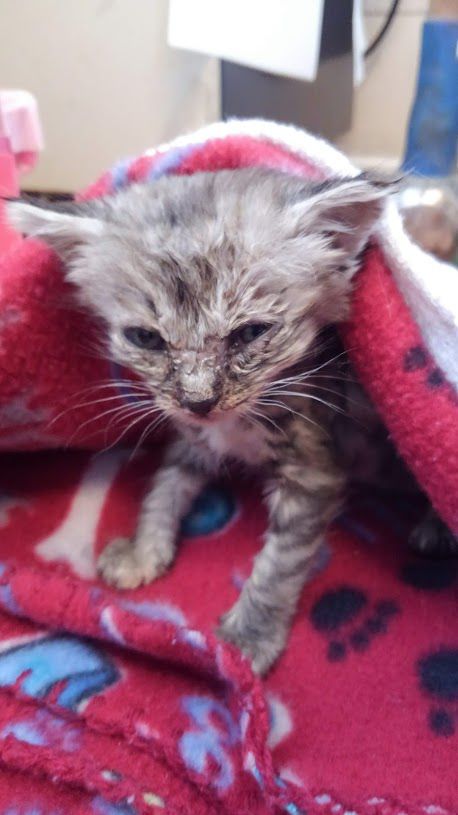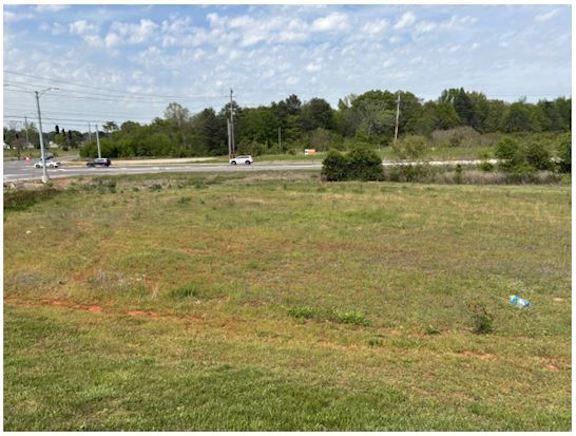Kittens in storm drain ‘example’ of ongoing problems
Published 6:00 am Tuesday, August 20, 2019

- Wynken rests in a blanket Monday, Aug. 19. The 3-week-old kitten was found several days earlier in a storm drain after someone poured paint and paint thinner on her and her family. She is believed to be from a litter of four, but only she, her brother Nod and their mother survived the incident.
A set of kittens were found covered in paint and paint thinner in an Athens storm drain last week. The rescue is being called an example of ongoing problems in the community.
Keri Chalmers said someone told her there were four kittens and a feral mother, possibly hurt, in a storm drain in Athens. She went looking for the animals Aug. 13 and discovered a pitiful sight: someone had poured paint and paint thinner down the storm drain and onto the kittens.
Trending
“You couldn’t miss it,” she said.
Chalmers was able to rescue three of the kittens, which are believed to be about 3 weeks old. The fourth was never found. One of the three, named Blynken after a character in a children’s story by Eugene Field, died within 48 hours of the rescue.
Chalmers took the other two kittens, Wynken and Nod, to a veterinarian in Tennessee on Saturday to have them checked out. One of them, a male, seems to be doing well, she said. The other, a female, had multiple issues from the chemical exposure, including peeling skin, raw spots and matted fur.
“I had to shave most of her fur — not down to the skin, but a lot of it — because it almost looked like someone had spiked her hair with hairspray,” Chalmers said.
She was able to track down the mother after the kittens were rescued. Because the mother was so feral, the vet had to sedate her just to apply flea medicine.
Now, what’s left of the cat family is back at Chalmers’ house, where she has set up a spot specifically for the mom to be kept safe and they can all be monitored while they heal.
Trending
Meanwhile, Keep Athens-Limestone Beautiful Executive Director Lynne Hart shared the story of the kitten family to KALB’s Facebook page. She told The News Courier she knew the story would be hard to look at, “but that’s reality.”
“This is just one example,” she said, of a multifaceted problem.
Remember to spay or neuter
Many may remember the former game show host Bob Barker, who ended episodes of “The Price Is Right” with the same advice: “Help control the pet population, remember to have your pets spayed or neutered.”
Unfortunately, despite it being an effective birth control that can help pets live longer and healthier lives, millions of animals do not undergo the surgery. As a result, they produce more and more offspring that can end up among millions of other homeless animals in the United States — including the more than 2.7 million animals that are euthanized in shelters annually, according to the Humane Society of the United States.
“There’s a lot of kittens out there because people won’t spay or neuter their pets,” said Chalmers, who plans to pay for the kittens she rescued to be spayed or neutered before they are made available for adoption.
Hart said the problem also falls on local veterinarians.
“We have so many wild cats that just keep having kittens,” Hart said. “We need people who will spay and neuter the strays, even if they go back into the wild.”
Bye-bye, waste
Residents also need a way to get rid of hazardous household waste, she said. Limestone County held an event for hazardous household waste disposal in 2008, and Hart has regularly approached the Athens City Council and Limestone County Commission for help hosting another one.
“Sometimes one says yes and the other says no, but until both say yes, we just can’t do it,” Hart said, adding the cost to host is equal to about half of KALB’s current annual budget. “… We can’t afford it. We’ll do all the labor, provide the volunteers, advertise — everything that needs to be done. The only thing we can’t do is provide the funding.”
Meanwhile, Limestone Countians make do. Hart said in a recent KALB survey, 31% said they hide it in their trash, while 5% dumped it down the drain, 11% dumped it outside and 7% said they burned the waste. Almost three-fourths of respondents said they stockpiled the waste at their home or on their property.
“That is why I’m so passionate about it, because all these years, people have been accumulating pesticides, rat killer, automobile and farm equipment fluids — and where are they going? They’re going somewhere, because unless you’ve got a huge barn to store all this stuff in, there’s nothing you can do about it,” Hart said.
Of course, even with a legitimate way to dispose of hazardous household waste, there’s still the problem of people who think their current methods are victimless.
“People are either ignorant of the laws and dangers of pouring these things down storm drains, or they don’t care,” Hart said. “… They think it’s a victimless crime to put it down a storm drain or pour it down a toilet, because it’s out of their sight, but it’s not gone and it’s causing problems.”





